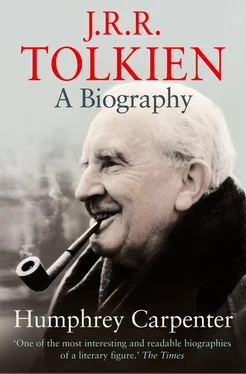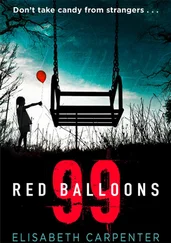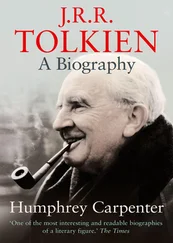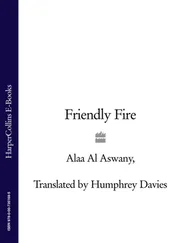1 ...6 7 8 10 11 12 ...17 Or rather, it made him into two people. He was by nature a cheerful almost irrepressible person with a great zest for life. He loved good talk and physical activity. He had a deep sense of humour and a great capacity for making friends. But from now onwards there was to be a second side, more private but predominant in his diaries and letters. This side of him was capable of bouts of profound despair. More precisely, and more closely related to his mother’s death, when he was in this mood he had a deep sense of impending loss. Nothing was safe. Nothing would last. No battle would be won for ever.
Mabel Tolkien was buried in the Catholic churchyard at Bromsgrove. Over her grave Father Francis Morgan placed a stone cross of the same design as that used for each of the Oratory clergy in their Rednal cemetery. In her will Mabel had appointed him to be guardian of her two sons, and it proved a wise choice, for he displayed unfailing generosity and affection to them. His generosity took a practical form, for he had a private income from his family’s sherry business, and since as an Oratorian he was not obliged to surrender his property to the community he could use his money for his own purposes. Mabel had left only eight hundred pounds of invested capital with which to support the boys, but Father Francis quietly augmented this from his own pocket, and ensured that Ronald and Hilary did not go short of anything essential for their well-being.
Immediately after their mother’s death he had to find somewhere for them to live: a tricky problem, for while ideally they should be housed by their own relatives there was a danger that the Suffield and Tolkien aunts and uncles might try to snatch them from the grasp of the Catholic Church. Already there had been some talk of contesting Mabel’s will and of sending the boys to a Protestant boarding-school. There was however one relative, an aunt by marriage, who had no particular religious views and had a room to let. She lived in Birmingham near the Oratory, and Father Francis decided that her house would be as good a home as any for the moment. So a few weeks after their mother’s death Ronald and Hilary (now aged thirteen and eleven) moved into their aunt’s top-floor bedroom.
Her name was Beatrice Suffield. She lived in a dark house in Stirling Road, a long side-street in the district of Edgbaston. The boys had a large room to themselves, and Hilary was happy leaning out of the window and throwing stones at cats below. But Ronald, still numb from the shock of his mother’s death, hated the view of almost unbroken rooftops with the factory chimneys beyond. The green countryside was just visible in the distance, but it now belonged to a remote past that could not be regained. He was trapped in the city. His mother’s death had severed him from the open air, from Lickey Hill where he had gathered bilberries, and from the Rednal cottage where they had been so happy. And because it was the loss of his mother that had taken him away from all these things, he came to associate them with her. His feelings towards the rural landscape, already sharp from the earlier severance that had taken him from Sarehole, now became emotionally charged with personal bereavement. This love for the memory of the countryside of his youth was later to become a central part of his writing, and it was intimately bound up with his love for the memory of his mother.
Aunt Beatrice gave him and his brother board and lodging, but little more. She had been widowed not long before, and she was childless and poorly off. Sadly, she was also deficient in affection, and she showed little understanding of the boys’ state of mind. One day Ronald came into her kitchen, saw a pile of ashes in the grate, and discovered that she had burnt all his mother’s personal papers and letters. She had never considered that he might wish to keep them.
Fortunately the Oratory was near, and it soon became Ronald and Hilary’s real home. Early in the morning they would hurry round to serve mass for Father Francis at his favourite side-altar in the Oratory church. Afterwards they would eat breakfast in the plain refectory, and then, when they had played their usual game of spinning the kitchen cat around in the revolving food-hatch, they would set off for school. Hilary had passed the entrance examination and was now at King Edward’s, and the two boys would walk together down to New Street if there was time, or would take a horse-bus if the clock at Five Ways showed that they were late.
Ronald made many friends at school, and one boy in particular soon became an inseparable companion. His name was Christopher Wiseman. A year younger than Ronald, he was the son of a Wesleyan minister who lived in Edgbaston; he had fair hair, a broad good-natured face, and an energetically critical manner. The two boys met in the Fifth Class in the autumn of 1905, Tolkien achieving first place in the class – he was now showing distinct academic promise – and Wiseman coming second. This rivalry soon developed into a friendship based on a shared interest in Latin and Greek, a great delight in Rugby football (‘soccer’ was never played at King Edward’s), and an enthusiasm for discussing anything and everything. Wiseman was a staunch Methodist, but the two boys found that they could argue about religion without bitterness.
Together they moved class by class up the school. Clearly Ronald Tolkien had an aptitude for languages – his mother had seen that – and King Edward’s provided the ideal environment in which this aptitude could flourish. The study of Latin and Greek was the backbone of the curriculum, and both languages were taught particularly well in the First (or senior) Class, which Ronald reached shortly before his sixteenth birthday. The First Class was under the bright eye of the headmaster, Robert Cary Gilson, a remarkable man with a neat pointed beard who was an amateur inventor and an accomplished scientist as well as a skilled teacher of the classics; among his inventions were a windmill that charged batteries to provide electric light for his house, a species of hectograph which duplicated the school exam papers (illegibly, said the boys), and a small gun that could shoot golf balls. When teaching, he encouraged his pupils to explore the byways of learning and to be expert in everything that came their way: an example that made a great impression on Ronald Tolkien. But though he was discursive, Gilson also encouraged his pupils to make a detailed study of classical linguistics. This was entirely in keeping with Tolkien’s inclinations; and, partly as a result of Gilson’s teaching, he began to develop an interest in the general principles of language.
It was one thing to know Latin, Greek, French and German; it was another to understand why they were what they were. Tolkien had started to look for the bones, the elements that were common to them all: he had begun, in fact, to study philology, the science of words. And he was encouraged to do this even more when he made his acquaintance with Anglo-Saxon.
This was thanks to George Brewerton, the master who preferred muck to manure. Under his tuition Ronald Tolkien had shown an interest in Chaucerian English. Brewerton was pleased by this and offered to lend the boy an Anglo-Saxon primer. The offer was accepted eagerly.
Opening its covers, Tolkien found himself face to face with the language that was spoken by the English before the first Normans set foot in their land. Anglo-Saxon, also called Old English, was familiar and recognisable to him as an antecedent of his own language, and at the same time was remote and obscure. The primer explained the language clearly in terms that he could easily understand, and he was soon making light work of translating the prose examples at the back of the book. He found that Old English appealed to him, though it did not have the aesthetic charm of Welsh. This was rather a historical appeal, the attraction of studying the ancestor of his own language. And he began to find real excitement when he progressed beyond the simple passages in the primer and turned to the great Old English poem Beowulf. Reading this first in a translation and then in the original language, he found it to be one of the most extraordinary poems of all time: the tale of the warrior Beowulf, his fight with two monsters, and his death after battle with a dragon.
Читать дальше












